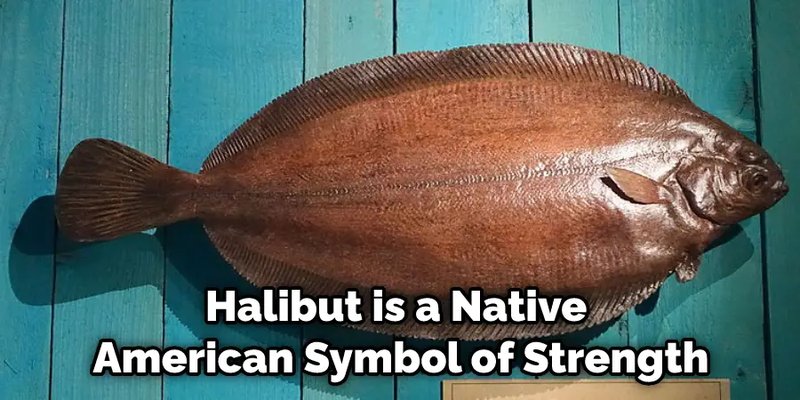
Imagine sitting down with a bowl of seafood stew, and as you take a bite of halibut, you’re also tasting a rich history filled with legends. From its role in Native American traditions to its presence in culinary practices, halibut offers a window into various cultural beliefs. Let’s dive into the fascinating world of halibut myths and cultural narratives that have surrounded this fish for generations.
The Halibut in Native American Culture
Many Native American tribes, especially those from the Pacific Northwest, hold halibut in high regard. It’s not just food; it’s part of their identity. For tribes like the Tlingit and Haida, halibut is more than a source of sustenance; it’s a symbol of wealth and abundance. Traditionally, halibut fishing was a communal activity, bringing families and villages together, fostering bonds and shared stories.
One fascinating belief is that halibut has a spiritual side. Some tribes see it as a protector, providing guidance to those who honor the fish and its habitat. This respect for the halibut extends to rituals and celebrations, where they express gratitude for the fish’s life. While modern society often overlooks these cultural connections, they play a crucial role in understanding halibut’s significance to Indigenous peoples.
Halibut Myths and Folklore
Halibut is surrounded by a variety of myths that add a layer of intrigue to its existence. One popular tale tells of a giant halibut that could create storms in the ocean. Fishermen believed that if they didn’t show proper respect, they would anger the fish, leading to disastrous fishing trips. This myth served as a reminder of nature’s power and the importance of humility when interacting with it.
Another interesting story involves the halibut being a shape-shifter. In this tale, a halibut could turn into a beautiful maiden, walking along the shore. Fishermen who treated halibut well were rewarded with good catches, while those who did not faced misfortune. Stories like these illustrate not only the reverence for halibut but also a broader view of nature, where animals embody various forces and lessons.
Halibut in Modern Cuisine
Today, halibut is celebrated for its mild flavor and versatile nature in cooking. Chefs love halibut for its firm texture, making it perfect for grilling, baking, or frying. It’s often featured in gourmet dishes, but that doesn’t mean it has lost its cultural roots. Many cooks still pay homage to traditional preparation methods, incorporating local ingredients that reflect their own heritages.
For some, halibut represents a link between the past and present. When you’re enjoying a halibut dish, you’re not just tasting fish; you’re also sampling history. This appreciation for the ingredient connects chefs to ancient practices and acknowledges the fish’s role in sustaining communities for centuries.
Environmental Beliefs Surrounding Halibut
The halibut isn’t just a culinary delight; it also has a significant place in environmental discussions. Many cultures believe in the importance of sustainable fishing practices, especially concerning halibut. Overfishing and habitat destruction pose threats to halibut populations, and some communities have developed initiatives to protect this vital species.
Interestingly, some traditional fishing practices involve only taking what is needed, reflecting a deep understanding of balance in nature. This philosophy resonates today as many advocates call for sustainable practices to ensure that future generations can enjoy halibut as well. By understanding these beliefs, we see how culture and environmentalism can mesh beautifully.
Halibut and Spirituality
Many communities hold deep spiritual beliefs about halibut, viewing it as a messenger between the physical and spiritual worlds. Some customs include offerings made to the halibut before fishing, asking for blessings for a good catch. This practice reinforces the idea that all beings, including fish, deserve respect.
People also believe that consuming halibut can bring about good fortune, strength, or even healing. In various cultures, the fish is thought to harbor special powers, aiding in physical and spiritual well-being. Whether you’re a believer in these spiritual connections or simply appreciate halibut as a food source, the ties between health, spirituality, and nature are significant.
Halibut is more than just a fish; it’s a rich tapestry woven into the fabric of various cultures and histories. From its revered status in Native American communities to its role in modern cuisine, halibut is a symbol of abundance, respect, and connection with nature. Understanding these myths and cultural beliefs helps deepen our appreciation for this remarkable flatfish.
So, next time you enjoy halibut, whether grilled or in a fish stew, remember that you’re part of a larger tradition—one that honors the fish’s legacy and the values it represents. In this bustling world, taking a moment to acknowledge halibut’s journey can transform a simple meal into a cherished experience filled with history and cultural significance.
